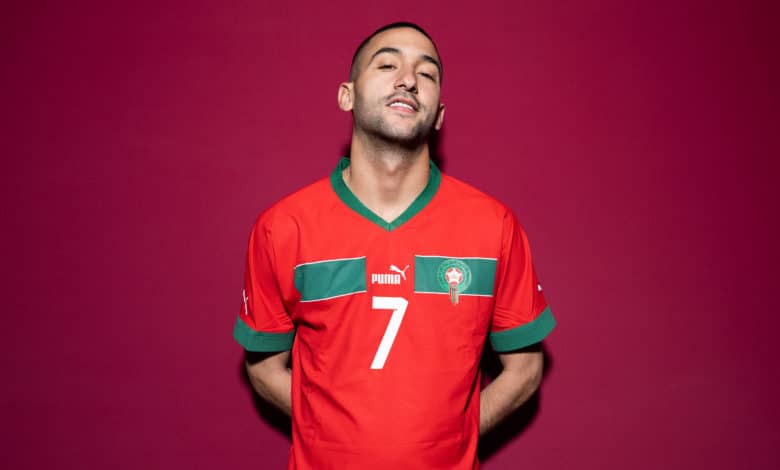
Yesterday, the 2030 FIFA World Cup logo was unveiled for the first time with the phrase “Yalla Vamos 2030.” This tournament will mark the centennial World Cup competition and for the first time in tournament history, the prestigious competition will be hosted by three countries in two different continents.
The logo for 2030 FIFA World Cup:
— Micky Jnr (@MickyJnr__) March 19, 2024
????? ????? ???? ??????#AfricanFootball #FIFAWC pic.twitter.com/JloZ4drk45
Spain, Portugal, and Morocco won the 2030 World Cup bid as the host nations for the tournament. Additionally, Argentina, Paraguay, and Uruguay are serving as nations that will commemorate the 100th anniversary of the match as the first FIFA World Cup was hosted in Uruguay in 1930.
The first match of the World Cup will be held in Uruguay, and there will be a celebration for the tournament’s 100th anniversary. This will be followed by the second and third games of the competition being held in Argentina and Paraguay before continuing the remaining games and opening ceremony in Morocco, Spain, and Portugal.
These six national teams have automatically qualified from the slot allocation quota for the 2030 World Cup as they are contributing to hosting the tournament.
Spain and Portugal’s most remarkable recent feats occurred when Spain clinched the 2010 World Cup title and Portugal secured the fourth place spot in 2006. The two countries have established themselves as global football powerhouses, while Morocco has struggled in past competitions and has often been an overlooked national team.
With Spain and Portugal’s respective successes in prior World Cup and global tournaments, the decision to designate Morocco as a co-host of the prestigious tournament hints towards the country’s rise as a regional and continental football powerhouse.
This decision is momentous in illustrating the recognition of the sporting capabilities of the country, as Morocco has not hosted a major tournament since the 1988 African Cup of Nations.
In the 1986 World Cup in Mexico, Morocco became the first African and Arab country to advance past the Group Stage, affording them the recognition of being the greatest football nation in Africa.
The country has repeatedly bid for the World Cup tournament, with recent bids in 2006, 2010, 2026, and 2030. Each bid was denied until the 2030 Spain-Portugal-Morocco bid, which can be attributed to Morocco’s success in the 2022 Qatar World Cup competition, a tournament that saw them reach the semifinals.
In Qatar, Morocco garnered attention as the former underdogs made a shocking and historic Cinderella performance when they advanced to the semi-finals after beating European giants Portugal 1-0, later competing in the third-place match against Croatia. Morocco’s feats started when the team beat Spain with three penalty kicks in the Round of 16 match before advancing to the quarterfinals and beating Portugal.
Unfortunately, Morocco fell to France 2-0 in the semi-finals. Still, the nation captured global attention as it became the first African and Arab team in the competition’s history to advance to the semi-finals. Despite their loss to France, Morocco competed in the third-place match against Croatia and lost 2-1, securing their fourth-place spot in the 2022 World Cup.
Morocco’s 2022 Cinderella run established the team as a trailblazer for other World Cup underdogs and showed the global football community that the African team is a force to be reckoned with.
Following their recent feats, within a short period, Morocco finally received the recognition it needed to emphasize its status as a regional and continental football powerhouse. On September 27, 2023, the country was awarded the hosting right for the 2025 African Cup of Nations.
These hosting rights assured Morocco’s rising dominance in the sport. A few days later, on October 4, 2023, the country received greater global recognition when it qualified as co-host for the most illustrious football competition in the world.
Morocco still has time to qualify for the 2026 World Cup, bringing their appearances in the competition up to 8 and providing another chance to emphasize its growing dominance in the sport.
While the 2030 World Cup is momentous as it marks the competition’s 100th anniversary and the first time the tournament is intercontinental, it also marks a historic moment for Morocco by emphasizing its status as a rising global powerhouse.



